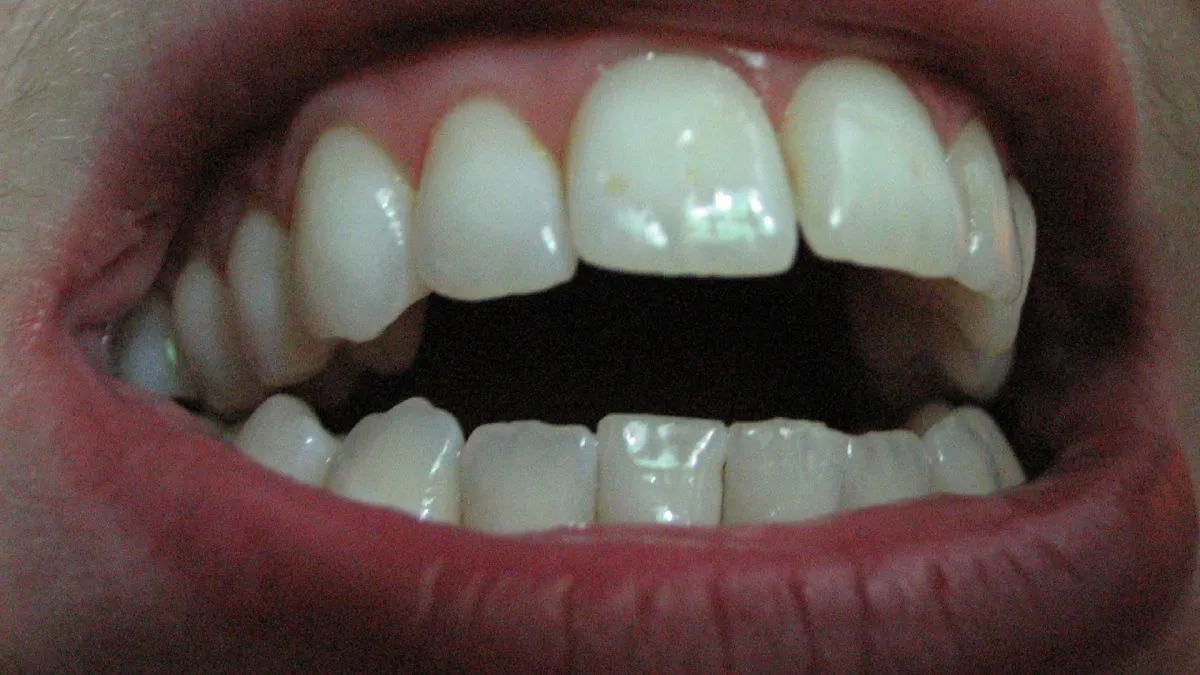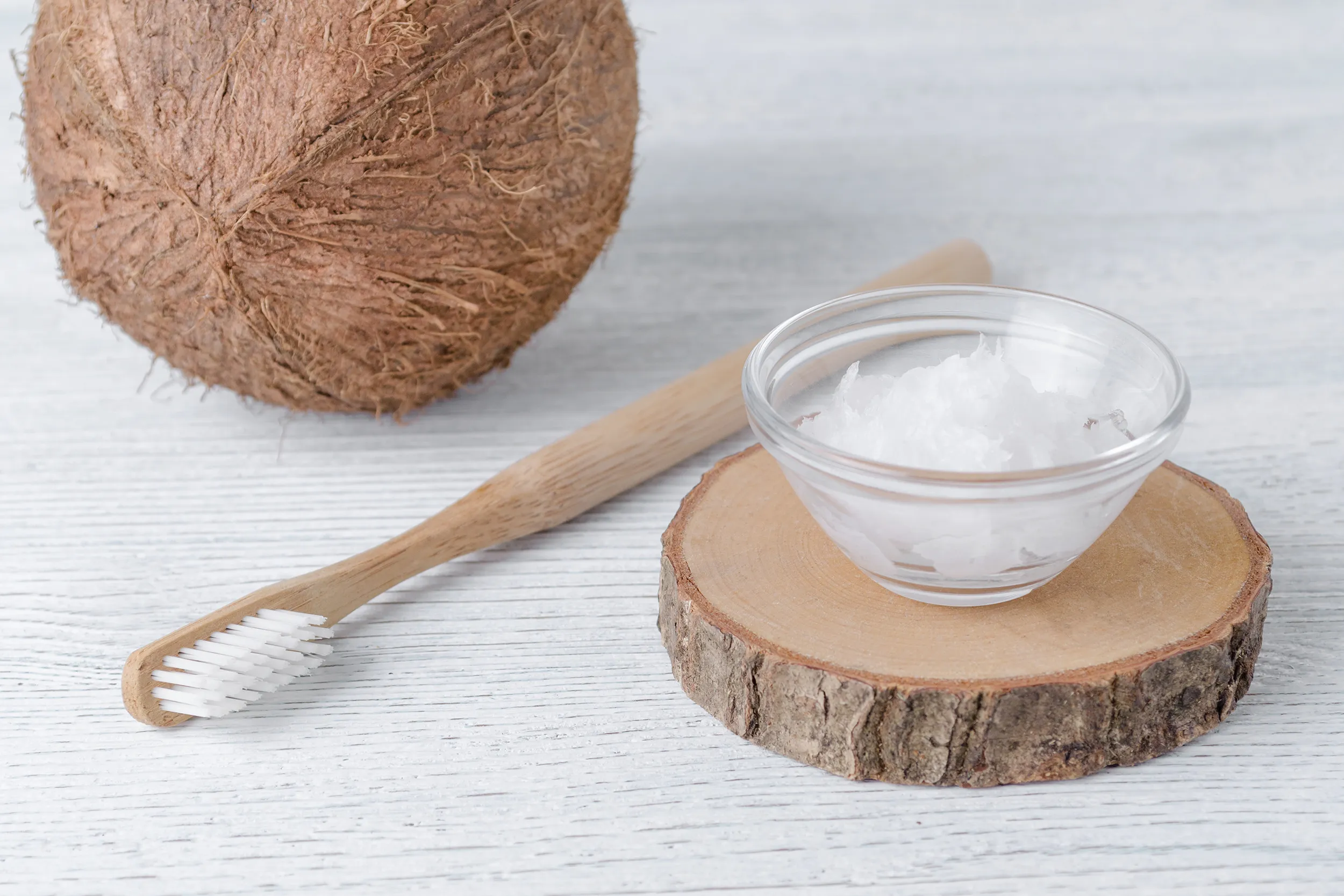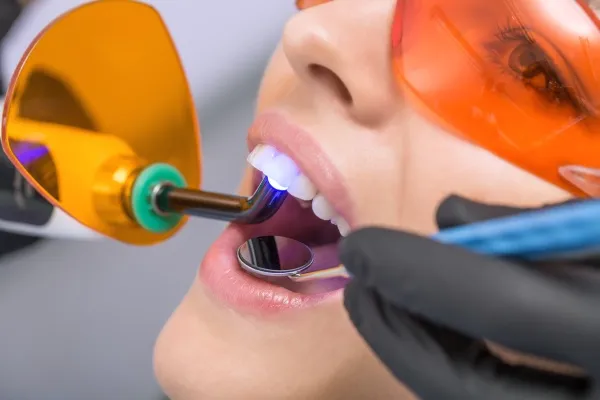What is Oil Pulling?
Oil pulling is an ancient Ayurvedic practice that has gained popularity in recent years as a natural way to improve oral health and whiten teeth. This technique involves swishing oil, typically coconut oil, sesame oil, or sunflower oil, around the mouth for a specific period. The process is believed to draw out toxins and bacteria, leading to various health benefits, including teeth whitening. Many people are turning to oil pulling as a more natural and holistic approach to dental care, seeking to avoid harsh chemicals and procedures. This simple yet effective method is easily incorporated into a daily routine, making it an accessible option for improving oral hygiene and overall wellness.
The History of Oil Pulling
The roots of oil pulling can be traced back thousands of years to ancient India. Ayurvedic texts, such as the Charaka Samhita, describe oil pulling as a traditional remedy for oral health and overall well-being. The practice was initially used to detoxify the body and promote healing. Over time, it became an integral part of Ayurvedic medicine, used to address various health issues beyond just oral care. The resurgence of oil pulling in modern times is a testament to its enduring appeal and the growing interest in natural and holistic health practices. The practice has been passed down through generations, demonstrating the belief in its effectiveness and its role in maintaining a healthy lifestyle.
How Does Oil Pulling Work?

The mechanism behind oil pulling is relatively simple, yet effective. The oil acts as a solvent, binding with bacteria, toxins, and debris in the mouth. As the oil is swished around, it reaches areas that might be difficult to clean with regular brushing and flossing. The oil helps to dislodge and trap these impurities. When the oil is expelled, it carries away these harmful substances, leaving the mouth cleaner and healthier. The consistency of the oil changes during the process, becoming thinner and milky, indicating that it has absorbed the impurities. This process, when practiced consistently, can lead to improved oral health and a brighter smile. It’s a gentle yet powerful way to maintain oral hygiene.
Oil Pulling Teeth Whitening Benefit 1 Improved Oral Hygiene
One of the primary benefits of oil pulling is improved oral hygiene. By removing bacteria and toxins, oil pulling can help to reduce the risk of cavities, gum disease, and bad breath. Regular oil pulling complements brushing and flossing, reaching areas that are often missed by traditional oral hygiene practices. This comprehensive approach to oral care results in a cleaner mouth and a healthier environment for your teeth and gums. Improved oral hygiene not only enhances the appearance of your smile but also contributes to overall health and well-being. The practice supports a balanced oral microbiome.
How Oil Pulling Reduces Bacteria
The effectiveness of oil pulling in reducing bacteria is a key factor in its benefits. The oil, often coconut oil, contains lauric acid, which has antimicrobial properties. As the oil is swished around the mouth, it effectively binds to bacteria, preventing them from adhering to the teeth and gums. This action helps to reduce the bacterial load in the mouth, minimizing the risk of infections and promoting a healthier oral environment. By disrupting bacterial colonies, oil pulling helps to restore the natural balance of the oral microbiome. Regular practice can lead to a noticeable reduction in plaque buildup and a decreased risk of dental problems.
Oil Pulling Teeth Whitening Benefit 2 Natural Teeth Whitening

One of the most attractive benefits of oil pulling is its potential to naturally whiten teeth. The oil, as it moves through the mouth, helps to lift stains and discoloration from the teeth’s surface. This gentle action does not involve harsh chemicals or abrasive agents, making it a natural and safe alternative to commercial teeth whitening products. Many users report a noticeable improvement in the brightness of their teeth after consistent oil pulling. While the results may vary from person to person, oil pulling offers a gentle way to achieve a brighter, more radiant smile. The long-term effects, when combined with good oral hygiene, can contribute to a significantly whiter appearance.
The Science Behind Teeth Whitening
The process of teeth whitening through oil pulling involves several factors. The oil helps to break down and remove the stains caused by foods, drinks, and tobacco. As the oil pulls away impurities, it helps to expose the natural whiteness of the teeth. The antimicrobial properties of the oil contribute to reducing the bacteria that can cause discoloration. It’s important to note that while oil pulling can improve the appearance of teeth, it may not achieve the same level of whitening as professional treatments. The effectiveness can depend on the individual’s diet, lifestyle, and the extent of existing stains. However, it offers a gentle, natural way to brighten your smile over time.
Oil Pulling Teeth Whitening Benefit 3 Reduced Plaque and Gingivitis
Oil pulling has demonstrated significant benefits in reducing plaque buildup and preventing gingivitis. The oil’s ability to bind to bacteria and remove them from the mouth helps to control the formation of plaque, a sticky film that harbors harmful bacteria. By reducing plaque, oil pulling minimizes the risk of inflammation and irritation of the gums, thereby preventing or mitigating gingivitis. Many individuals experience healthier gums and a reduction in bleeding and swelling after regular oil pulling. This can result in improved gum health and a lower risk of developing periodontal disease. It’s a proactive step in maintaining overall oral health.
The Impact of Plaque and Gingivitis

Plaque and gingivitis are major contributors to various dental problems. Plaque, if left untreated, hardens into tartar, which can lead to gum disease and tooth decay. Gingivitis, characterized by inflammation and bleeding gums, is the initial stage of gum disease. It can progress to periodontitis, a more severe form of gum disease that can result in tooth loss. Controlling plaque and preventing gingivitis are essential for maintaining healthy teeth and gums. Oil pulling offers a natural way to combat these issues by reducing bacterial buildup and promoting a healthy oral environment, thus significantly minimizing the risk of dental problems.
Oil Pulling Teeth Whitening Benefit 4 Fresher Breath
Another notable benefit of oil pulling is its effectiveness in combating bad breath, or halitosis. The oil helps to remove bacteria, food particles, and toxins that contribute to unpleasant odors in the mouth. By reducing the bacterial load, oil pulling eliminates the source of bad breath, leaving the mouth feeling fresher and cleaner. Many users report a noticeable improvement in their breath after incorporating oil pulling into their routine. The antimicrobial properties of the oil work to neutralize the volatile sulfur compounds that cause bad breath. This benefit not only improves oral health but also boosts self-confidence and social interactions.
How Oil Pulling Eliminates Bad Breath
Oil pulling eliminates bad breath by targeting the root causes. The oil binds with bacteria and food particles that contribute to the production of volatile sulfur compounds. These compounds are responsible for the unpleasant odor associated with halitosis. By removing these compounds, oil pulling effectively freshens the breath. It also helps to cleanse the tongue and the spaces between teeth, where bacteria often accumulate. The antibacterial action of the oil further ensures that the conditions conducive to bad breath are eliminated. Regular oil pulling can lead to consistently fresher breath and improved oral hygiene.
Oil Pulling Teeth Whitening Benefit 5 Detoxification

Oil pulling is believed by many to have detoxification properties, as it helps to remove toxins and harmful substances from the mouth. According to Ayurvedic principles, the mouth is a gateway to the rest of the body, and removing toxins from this area can contribute to overall health. The oil absorbs bacteria, toxins, and other impurities, which are then discarded when the oil is expelled. While scientific evidence supporting the systemic detoxification effects of oil pulling is limited, many users report feeling a sense of improved well-being and overall health after incorporating it into their routine. The act of detoxifying the mouth creates a healthier environment that supports overall health.
The Detoxification Process and Oral Health
The detoxification process associated with oil pulling involves removing harmful substances that can negatively impact oral health and the body. By eliminating bacteria and toxins, oil pulling helps to maintain a healthy oral environment. This can prevent the accumulation of substances that can lead to various health problems. The removal of harmful bacteria and toxins not only promotes healthier teeth and gums but also supports the overall immune system. Oil pulling serves as a simple yet effective tool for maintaining oral health and supporting the body’s natural detoxification processes, potentially contributing to overall health and vitality.
How to Practice Oil Pulling for Teeth Whitening
Practicing oil pulling for teeth whitening and overall oral health is a straightforward process. The typical steps include taking about a tablespoon of oil, usually coconut oil, and swishing it around the mouth for 15 to 20 minutes. It’s important to ensure the oil reaches all areas of the mouth, including between the teeth and around the gums. After the swishing, the oil should be spat out, ideally into a trash can to prevent it from clogging the sink. The mouth should then be rinsed with warm water, and finally, the teeth should be brushed. Consistent practice, preferably daily, is recommended to experience the full benefits of oil pulling. Regular oil pulling can become an integral part of a comprehensive oral hygiene routine.
Choosing the Right Oil for Oil Pulling

The choice of oil for oil pulling is an important consideration. Coconut oil is the most popular choice, as it contains lauric acid, which has potent antibacterial properties. Sesame oil and sunflower oil are also traditional options. Coconut oil offers a pleasant taste and has a solid form at room temperature, making it easy to measure. Sesame oil provides a nutty flavor, while sunflower oil has a mild taste. It’s essential to choose a high-quality, unrefined oil to ensure the best results. Experimenting with different oils can help you find the one that best suits your preferences and oral health needs. Always opt for oils that are free of additives and chemicals.
Step-by-Step Guide to Oil Pulling
- Prepare: Measure one tablespoon of your chosen oil. Coconut oil is commonly used.
- Swish: Place the oil in your mouth and swish it gently around for 15-20 minutes. Ensure that you reach all areas of your mouth.
- Spit: Spit the oil out into a trash can or paper towel to avoid clogging the sink.
- Rinse: Rinse your mouth thoroughly with warm water.
- Brush: Brush your teeth as usual to remove any remaining residue.
- Frequency: Repeat this process daily, preferably in the morning on an empty stomach, for optimal results. Consistency is key.
- Observe: Note any changes in your teeth whitening and oral health over time.
- Persistence: Continue the practice to maintain and build upon these benefits. Oil pulling is best when incorporated into your daily routine.
Tips for Successful Oil Pulling
For successful oil pulling, start with a comfortable amount of time, such as 5-10 minutes, and gradually increase it. Swishing the oil gently is sufficient; there’s no need for vigorous action. Be consistent with your practice to see the best results. Make sure to spit the oil into a trash can to avoid any plumbing issues. If you find the taste of the oil unpleasant, consider using a flavored oil. Staying hydrated is crucial, so drink water after oil pulling. Be patient; it may take several weeks or months to notice significant changes in teeth whitening and overall oral health. It is always best to consult with a dentist to discuss any oral health concerns and ensure that oil pulling is appropriate for your specific needs.
